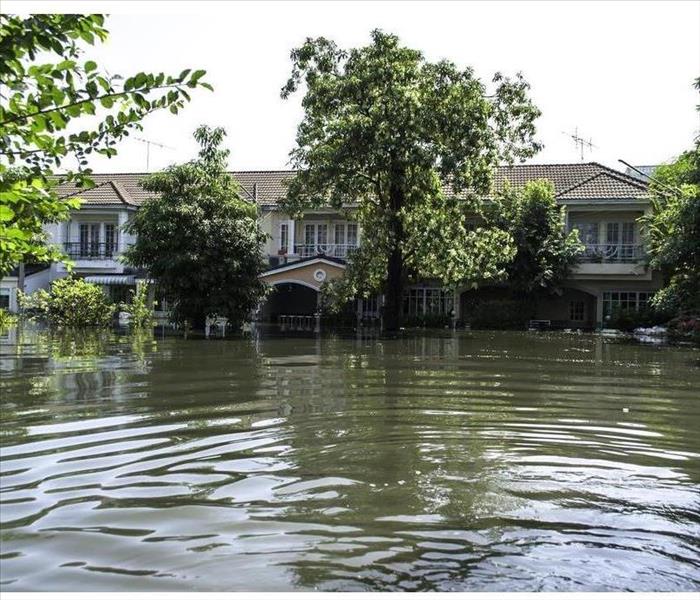What You Should Know About Floods
9/27/2018 (Permalink)
Floods are one of the most common natural disasters on this planet. They can destroy buildings and cause water damage. They can also be dangerous too.
A few ways a flood can occur might include the following:
- Excessive rain
- A stream or river that has overflowed
- A damaged dam
No matter how the flooding happens, it’s important to know what you are dealing with. Here is what you should know about floods.
Danger - Flood Water
One of the biggest concerns during these types of natural disasters is black water. This type of water is severely contaminated. Flood water isn’t just rain; it’s full of sewage, chemicals, and dangerous items such as broken glass or metal. It’s very important that you avoid touching the water and don’t drink it.
After the initial disaster, you may be able to return to your commercial building in East Pembroke Pines, Florida. However, be sure to wear protective gear when dealing with any water damage or mold. Thoroughly clean or throw away anything that has been submerged in this water, and seek help from professionals.
Location - Flash Floods
It’s important to realize that floods can truly happen anywhere, at any time. Flash floods can occur when rain falls heavily on the already highly-saturated soil. They can also happen when the soil is dry and doesn’t absorb water well. This creates lots of runoff that can cause flash flooding in low areas.
If your business is in a region that could be subject to flooding, be sure to find high ground that you could evacuate to. To minimize risk, every building should have a secure escape route and a backup plan.
Key - Awareness
Local radio stations normally keep people aware of weather conditions, especially during a storm. While this is helpful and can help you prevent water damage in your building, you can also take personal precautions that can ensure your safety.
By steering clear of black water and realizing the risk of flash flooding, you can be prepared for both types of water disaster.






 24/7 Emergency Service
24/7 Emergency Service